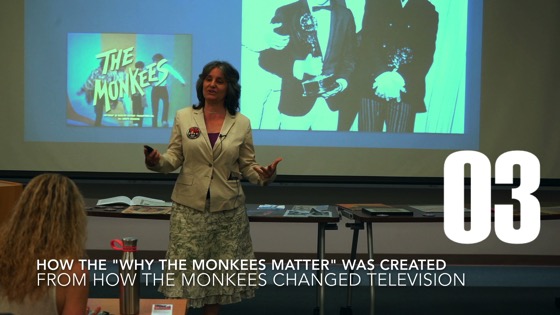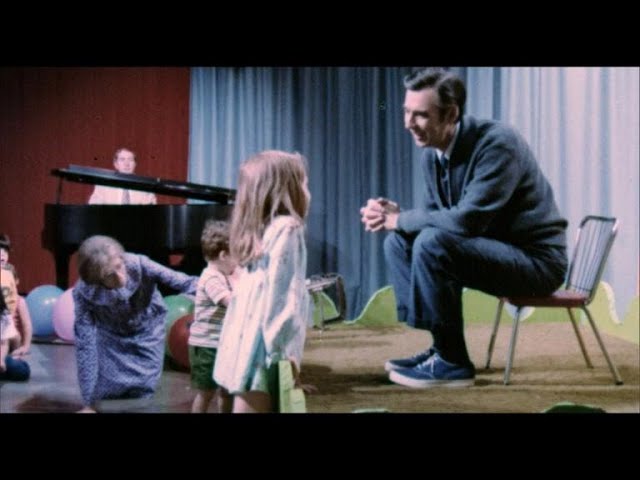Watch this entire presentation: Gender Diversity in the Who-niverse: Paving the Way for a Lady Doctor with Dr. Rosanne Welch [Video] (36:58)
For her 5th Doctor Who lecture to the CPP community, Dr. Rosanne Welch discusses how society – and the show’s writing staff – prepared the audience for a major change in this 50-year franchise – the creation of the first Lady Doctor!
Transcript:
Is this the first time anyone’s ever considered a lady Doctor? As a matter of fact, it’s not. This has been in discussions for a while but it’s as if society wasn’t ready for it and they knew it. They had to wait for us to catch up to what the writers wanted to do. Tome Baker who some of you, if you know old Who, should know as one of the most popular, previous Doctors — he actually said, when they were switching Doctors and that was in 1980 — “I wish my successor, whoever he or she might be, the best of luck.” So he was already planting the seeds of this possibility and I think that’s really interesting in 1980. What’s funny is, I often tell people, it’s wonderful to watch news from other countries to realize there are different perspectives than our American perspectives and my favorite story is, in 1980 when they announced the new Doctor, the first story on the BBC news that evening was that Peter Davison would take over for the job of Doctor Who from Tom Baker. The second news story in England that day was that Ronald Reagan had just won the American presidency.
Follow Dr. Welch on Twitter and Instagram
https://twitter.com/rosannewelch – http://instagram.com/drrosannewelch
Rosanne Welch, PhD
Rosanne Welch PhD teaches the History of Screenwriting and One-Hour Drama for the Stephens College MFA in Screenwriting.
Writing/producing credits include Beverly Hills 90210, Picket Fences, ABCNEWS: Nightline and Touched by an Angel. In 2016 she published the book Why The Monkees Matter: Teenagers, Television and American Pop; co-edited Women in American History: A Social, Political, and Cultural Encyclopedia; and placed “Transmitting Culture Transnationally Via the Characterization of Parents in Police Procedurals” in the New Review of Film and Television Studies. Essays appear in Torchwood Declassified: Investigating Mainstream Cult Television and Doctor Who and Race: An Anthology. Welch serves as Book Reviews editor for Journal of Screenwriting and on the Editorial Advisory Board for Written By magazine, the magazine of the Writers Guild.
Watch Dr. Welch’s talk “The Importance of Having a Female Voice in the Room” at the 2016 TEDxCPP.
Podcast: Play in new window | Download
Subscribe: RSS
![16 First Mention of a Lady Doctor? from Gender Diversity in the Who-niverse [Video] (1:02)](https://rosannewelch.com/wp-content/uploads/2018/06/gender-dw-16-first-lady.jpeg)
![We Lead Interdisciplinary Lives. We Need Interdisciplinary Learning! – Dr. Rosanne Welch [Video] (26:32)](https://rosannewelch.com/wp-content/uploads/2018/06/aaas-1.jpg)

![We Lead Interdisciplinary Lives. We Need Interdisciplinary Learning! - Dr. Rosanne Welch [Video] (26:32)](https://rosannewelch.com/wp-content/uploads/2018/06/rmw-aaas-2-1.jpg)
![04 How Monkees Directors & Who Is Rosanne Welch? from How The Monkees Changed Television [Video] (1:02)](https://rosannewelch.com/wp-content/uploads/2018/06/monkees-tv-04-who.jpeg)

![15 Chris Chibnall and Doctor Who from Gender Diversity in the Who-niverse [Video] (0:54)](https://rosannewelch.com/wp-content/uploads/2018/06/gender-dw-15-chibnall.jpeg)


![14 From Master to Missy from Gender Diversity in the Who-niverse [Video] (1:02)](https://rosannewelch.com/wp-content/uploads/2018/06/gender-dw-14-master-missy.jpeg)

![02 The Writers of The Monkees from How The Monkees Changed Television with Rosanne Welch, PhD [Video] (1:06)](https://rosannewelch.com/wp-content/uploads/2018/05/monkees-tv-02-writers.jpeg)
![13 Steven Moffat, Representation and Doctor Who from Gender Diversity in the Who-niverse [Video] (1:01)](https://rosannewelch.com/wp-content/uploads/2018/05/gender-dw-13-moffat-1.jpeg)